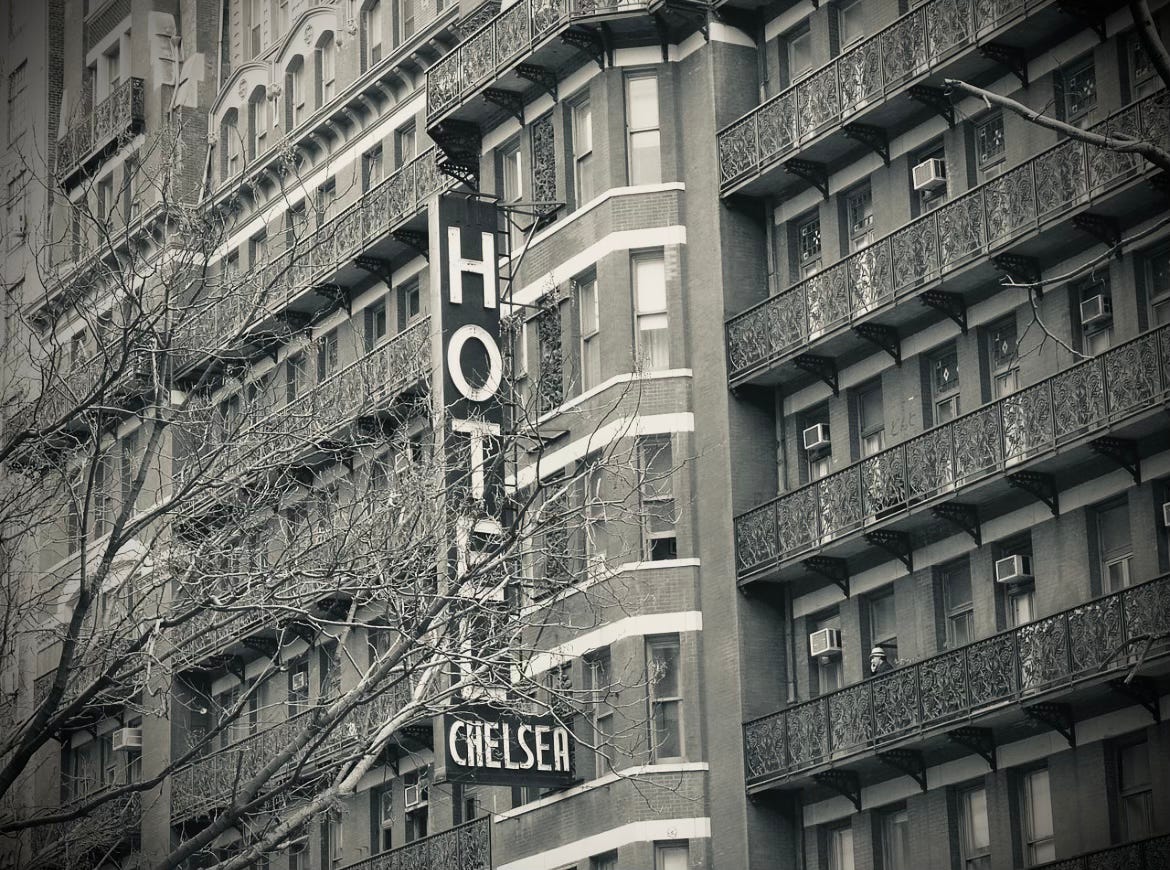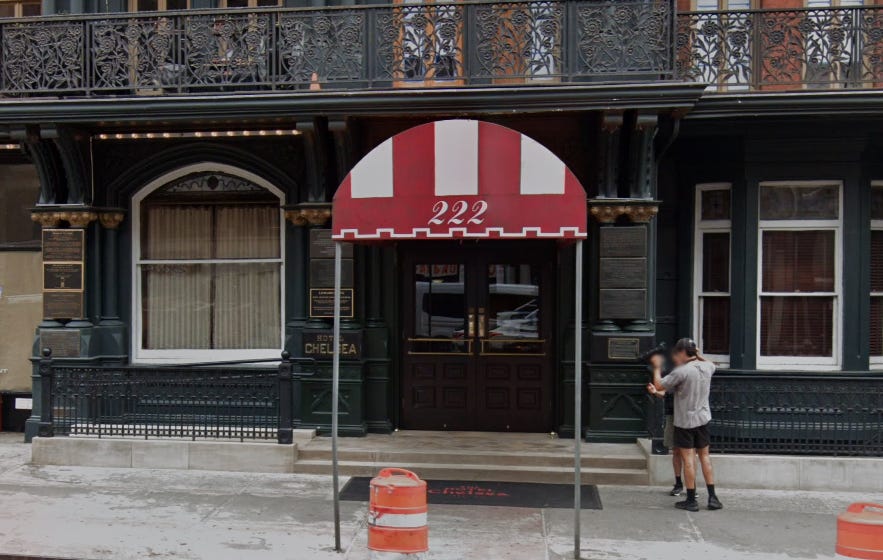Note: This essay was copyedited and tweaked on April 27. No facts have been changed.
Perhaps you woke up Friday to Taylor Swift’s new double (surprise!) album. Or perhaps you’re like me and stayed up Thursday night, to an obscenely late hour for an Xennial, to listen to it. A couple times.
My brief review: It’s good. It’s sad. It’s good and sad. I’m a newish fan of Swift’s music (though I was already a big fan of her courtroom testimony) and loved “Midnights.” TTPD feels like an extension of that chill-tronica vibe. Her wordplay is, as usual, strong, moreso than her melodies or singing; I did yearn a bit for some primal screams to match the breakup drama — which, maybe she did, too? Since she has Florence Welch, this generation’s preeminent primal screamer, make an appearance on “Florida!!!”?
Now comes the fun part, where we all match the lyrics to their real-world subjects (“The Smallest Man Who Ever Lived” is clearly Matty Healy) and decode the symbology (has she been flashing two fingers everywhere for the double album, for the two weeks of “Fortnight,” for the album’s run time — 2 hours and 2 minutes — or is it actually a peace sign, meaning...?), dig into the ConspicUously uppeRcaSE letters, aaaaand, most delectably for a smaller subset of us, the history.
Savannah Walsh over at Vanity Fair has a good backstory on ur-It girl Clara Bow, if you want more on the namesake track, and Karin Wulf, historian-librarian extraordinaire, has posted about those little drawers in TTPD promo images and the agonizing relatability of “The Manuscript.”
But what I want to talk about is the Chelsea Hotel.
The album’s name, “The Tortured Poets Department,” has already been picked over, with fans deciding it refers to Swift’s ex’s group chat with other sad-boi actors, which they called “The Tortured Man Club.” But now we have the lyrics to the whole song, which is the second track on the album, and a lot more to absorb. Like in the chorus, she sings:
And who’s gonna hold you, if not me?
And who’s gonna know you, if not me?
I laughed in your face and said,
“You’re not Dylan Thomas. I’m not Patti Smith.
This ain’t the Chelsea Hotel. We’re modern idiots.”
In 2003, when I was a baby history nerd and sad music girl (who had just taken a songwriting class in Kerrville), I moved to New York, literally on a Greyhound bus, with a guitar I couldn’t play. My first stop, to pay homage, was the Chelsea Hotel, though, like the Kaaba or the Salt Lake Temple, I never felt qualified to go inside. By that time, its transition from grungy center of the starving artist universe to boutique luxury hotel had begun (like, *sighs in cheap rent*, most of New York), but there were no less than seven plaques out front noting its places in history.
The artists are all gone, but the plaques are still up — now there are 11 — along with a trio of conspicuous 2s.
As culture writer Anne Helen Petersen has noted, Taylor Swift likes to do her homework1, so allow me to catch you up on what she probably already knows about that tortured old Chelsea Hotel.
The Dylan Thomas she namechecks in the song was a famous Welsh poet who died at the Chelsea Hotel. Wales is thick with poets (the wet, the coal, all those lllllls and wwwws acting like vowels2), and Thomas is at the top of that lilting heap. If you’ve ever heard someone say “Do not go gentle into that good night” — that’s from his poem. Thomas was also a drunk, a wanderer, and would’ve fit in on the pretentioustortured dudes’ group chat, despite Swift’s refusal in song to let the typewriter guy have the allusion. In 1953, Thomas collapsed at the hotel and died soon after, at 39, in one of those booze-fueled deaths romanticized by those who have never witnessed one.
Another poet named Robert Zimmerman, says the rumor that he changed his name to Bob Dylan in honor of Dylan Thomas isn’t true, but he lived at the Chelsea Hotel in the 1960s.
Pop artist Andy Warhol featured the hotel in his film “Chelsea Girls.” One of those hotel girls, the actress Edie Sedgwick, lit her room on fire; another, feminist writer Valerie Solanas, shot Warhol in the stomach.
Sci-fi writer Arthur C. Clarke wrote “2001: A Space Odyssey” while living there; so did William S. Burroughs while writing “The Naked Lunch.” And Jack Kerouac, O. Henry, Mark Twain (the hotel has been around since 1883), Allen Ginsburg, Mary McCarthy, Tennessee Williams, Vladimir Nabokov, Arthur Miller — all kinds of writers you’ll still find on an undergrad syllabus.
You may not know Stormé DeLarverie by name, but you probably know what she did. At least one historian credits her with “throwing the first brick” at Stonewall in 1969 (the brick was her fist, into a cop’s chin), ushering in the gay rights movement. A longtime resident of the Chelsea Hotel, here she is singing at a neighbor’s eviction party in 2008. (She’s just off camera, but you can hear her just fine.)
Let’s skip over the long list of actors (Bette Davis), painters (Frida Kahlo), photographers (Henri-Cartier Bresson) and directors (Stanley Kubrick) who walked its halls and get to the musicians. Besides Dylan, Jimi Hendrix, Iggy Pop, Ravi Shankar, Marianne Faithull, Joni Mitchell, various Ramones, and Family Stones accompanying one Sly all lived at the hotel. At least part of the draw for musicians were the famously thick walls, ideal for late-night — perhaps drug-fueled — recording sessions.3
Then there’s Patti Smith, the other Chelsea Hotel resident Swift names in “The Tortured Poets Department.” I won’t claim to have dug deep into her catalog, but I respect the hell out her — for her refusal to smooth her rougher edges, her fierce allyship before that what even a word, for “Because the Night” and for the line “Jesus died for somebody’s sins but not mine.”
I love that Swift might be introducing Patti Smith to her younger fans, even while denying herself (“I’m not Patti Smith”) the street cred by association.4
The Chelsea Hotel’s hands-down best moment, for me at least, is Leonard Cohen’s song “Chelsea Hotel #2,” which recounts, in lyrics both tender and harsh, Cohen’s one-night stand with Janis Joplin. He was in his mid-30s, a long-faced novelist from Canada trying and failing to break into folk music. She was 25 and famous for her wild voice, wild hair, wild clothes. They ended up in a slow elevator together, and as Cohen explained later: “She wasn’t looking for me, she was looking for Kris Kristofferson; I wasn’t looking for her, I was looking for Brigitte Bardot. But we fell into each other’s arms through some process of elimination.”
Google tells me that Swift friend Lana Del Rey did a cover of “Chelsea Hotel #2” some years back, but unlike a lot of Cohen songs, the gut punch of the original cannot be improved.
What jumps out to me — and probably isn’t accidental5 — is that Swift invokes the Chelsea Hotel in lyrics similar in content to Cohen’s. For all the differences between the two artists in space, time, sound and mien, both songs describe vividly the memory of early conversations, a sleepless night and the unanswered questions of a relationship lost.
The Chelsea Hotel’s co-owners ran the crumbling artists’ den rather uniquely, shall we say, for decades, even occasionally squeezing out a profit. They were forced to sell in 2011. The last long-term tenants — an aging choreographer, a conceptual artist in her 90s — still refused to leave as of last year, even while the building has underwent dangerous and disruptive renovations. As a fancy hotel, ownership has passed from one developer to another and another, each mysteriously unable to cash in on what for all intents and purposes should be a cash cow.
As Swift sings, “This ain’t the Chelsea Hotel. We’re modern idiots.” Taylor Swift lives in the fully Disney-fied New York City, and she knows it.
My grand theory is that Swift is primarily for overachiever women, who can also be twisty and misunderstood, tyvm. Which would explain why I previously wasn’t called to her music, and why I’ve warmed up to it.
Someday I will tell you how I ended up brokenhearted and sleeping outside on a cliff in Wales.
Those walls also muffled the sound of Nancy Spungen being murdered by Sid Vicious.
If you are unfamiliar with Patti Smith, start here. Or here.
See “Mastermind.”



